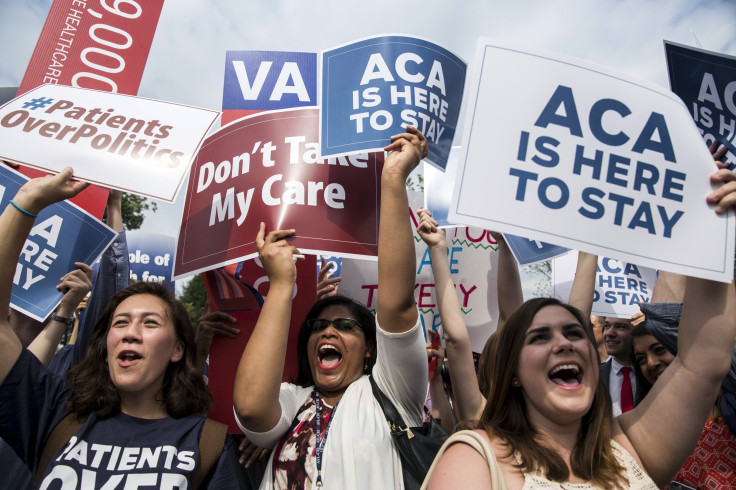Affordable Care Act: Unpaid Hospital Bills Are Shrinking Thanks To Obamacare

The number of unpaid medical bills is shrinking across the United States thanks to the Obama administration's Affordable Care Act. As more people sign up for private health insurance, and as more states expand Medicaid programs for low-income Americans, hospital companies are reporting lower expenses for charity and uncompensated expenses, a Forbes columnist noted Sunday.
The latest example comes from Universal Health Services Inc., one of the largest U.S. hospital management companies. The firm's acute care hospitals have seen a "decrease in the aggregate of charity care, uninsured discounts and provision of doubtful accounts as a percentage of gross charges," executives said in their earnings report for the second-quarter and first half of 2015.
Uncompensated care declined in the second quarter "as it has the last six quarters now," Steve Filton, the company's chief financial officer, told analysts on a conference call Thursday.
Universal Health's cost for providing "doubtful accounts" -- an estimate of charges that are expected to go unpaid -- dropped 17 percent to $274 million during the first half of 2015, down from $331 million in the previous year.
Acute care hospitals provided charity care and uninsured discounts amounting to $550 million in the first half of this year, a nearly 7 percent dip from costs of $586 million in the first six months of 2014.
The decreases helped the King of Prussia, Pennsylvania, hospital firm raise its earnings forecast for the rest of 2015. Executives said last week they're increasing the estimated range of adjusted net income attributable to the company to $6.75 to $7.15 per diluted share -- a roughly 10 percent jump from the previously provided range of $6.15 to $6.55 per diluted share.
Forbes columnist Bruce Japsen said other private hospital companies might report similarly lower expenses related to unpaid bills and charity care in the weeks ahead. Such trends "should help the entire hospital industry, particularly as more states opt to expand Medicaid," he wrote.
In the last 18 months, 31 states and the District of Columbia have accepted federal support to expand their Medicaid programs under the Affordable Care Act, the Kaiser Family Foundation found in its latest tally.
“We assume that the growth in our Medicaid patient base and utilization is related at least in large part to Medicaid expansion,” Filton told analysts on the conference call. Universal Health has acute care facilities in California, Nevada and the District of Columbia, all of which have expanded Medicaid. The company also has locations in Florida, Oklahoma, South Carolina and Texas, which are among the 19 states that have not grown their Medicaid programs.
Other U.S. hospital operators reporting earnings this week include Tenet Health and Community Health Systems Tuesday, and HCA Holdings Wednesday.
© Copyright IBTimes 2025. All rights reserved.





















